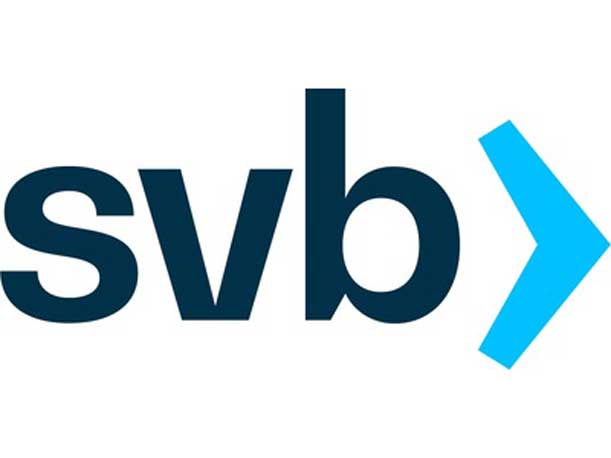Wasabi CFO On Doing Business With SVB: What Worked, What Didn’t And What’s Ahead
“If you’re asking why would companies bank with them, tech companies have a unique profile that is not necessarily consistent with the way that conventional banks look at target companies. Tech companies, in particular venture-backed tech companies, burn money. They are all about growing really, really quickly. And so many of the traditional banks will look at a profile like that and say, ‘Too risky for me. I don’t know you. I don’t want to be with a company that is burning money,’” says Wasabi CFO Michael Bayer.

Silicon Valley Bank: The Right Bank, But Wasabi Ready To Move On
The surprise demise of Silicon Valley Bank (SVB) has left much of the tech startup business concerned. Santa Clara, Calif.based SVB, which since its founding 39 years ago grew to become the 16th largest bank in the U.S., on March 10 failed after a run on its deposits as its customers grew worried about the recent series of interest rate hikes by the U.S. Federal Reserve. It was the U.S.’ second-largest bank failure ever.
Those clients primarily were tech startups that depended on SVB for loans, virtual currency business and financing acquisitions. According to Axios, 56 percent of its loans as of late 2022 went to venture capital and private equity firms secured by those companies’ partner commitments, 14 percent of its loans were in the form of mortgages to wealthy individuals and some other clients, and 24 percent went to various tech and health-care companies. SVB also claimed that nearly half of all U.S. venture-backed tech and health-care startups worked with the bank.
SVB deposits were insured by the Federal Deposit Insurance Corp. However, the failure of SVB led to worries by its clients, many of whom kept millions of dollars of their cash with the bank despite the fact that FDIC accounts were insured for a maximum of $250,000. Fortunately for those companies, the U.S. government stepped in to ensure that customers could access all their cash.
[Related: Major IT Companies That Did Business With SVB]
One of those SVB companies was Boston-based cloud storage technology developer Wasabi, which had banked with SVB for years. Wasabi CFO Michael Bayer, in an exclusive interview with CRN a few days after the U.S. government unveiled plans to help SVB’s customers, said SVB was a great bank to companies like Wasabi for years, and that his company used SVB for customer payments.
The choice to work with SVB was an easy one for startups, Bayer told CRN.
“Tech companies have a unique profile that is not necessarily consistent with the way that conventional banks look at target companies,” he said. “Tech companies, in particular venture-backed tech companies, burn money. They are all about growing really, really quickly. And so many of the traditional banks will look at a profile like that and say, ‘Too risky for me. I don’t know you. I don’t want to be with a company that is burning money.’ And traditional banks are very good at lending you money you don’t need.”
Wasabi was fortunate in that it was already making plans to take advantage of larger, more established banks that could provide the kinds of services the company had matured into, Bayer said.
“We were already looking for services that went beyond what SVB could provide,” he said. “We’re a global organization. We need support to do transactions in all of the different countries we’re in. We’re in the U.S., or Canada, or we’re in several countries in Europe, we’re in Singapore, we’re in Australia, we’re in Japan, we’re moving into other countries. We have a development center in Kosovo. We need a bigger footprint, and no matter before all of this happened in SVB, they just don’t have the operational support for it.”
Here is what Bayer had to say about being part of the SVB community for years and then going through the worry of what might happen to deposits.

How has Wasabi viewed the collapse of SVB?
There’s a lot of popular perception in the marketplace that SVB is collapsing. And if you go back to Thursday or Friday of last week, that was the case. But over the weekend, the FDIC stepped in, so now it’s business as usual.
The SVB has been a great bank for us for years. Our primary account where we get payments is at SVB. So on Friday, when we weren’t sure what was happening, we told our clients not to send payments there. But now we’re seeing business as usual. …
We were already looking for services that went beyond what SVB could provide. We’re a global organization. We need support to do transactions in all of the different countries we’re in. We’re in the U.S., or Canada, or we’re in several countries in Europe, we’re in Singapore, we’re in Australia, we’re in Japan, we’re moving into other countries. We have a development center in Kosovo. We need a bigger footprint, and no matter before all of this happened in SVB, they just don’t have the operational support for it.

But SVB is the country’s 16th largest bank. I’m surprised that they might not have that kind of support.
They just don’t. They had a banking affiliate in the U.K. And they have a Chinese operation, which you think about, if I’m starting a brand-new software company today, that’s gonna be scattering I need. But when I need to move money from a Japanese bank account to a Singaporean bank account, or I need to pay employees who are in Australia ... they don’t have the footprint for that. They can go through somebody else’s exchange desk or money center bank, but they’re going to somebody else. And that’s not an indictment of what they are. They are very good at the sort of traditional needs of a tech company. But there are services around foreign exchange, around certain investment services and so on, they just don’t have. And that’s why there is a place for money center banks, who span the globe, follow the sun around the globe, and have one system in one place that I can access all of our assets from one online login. …
I have to say, over the weekend, my concerns were not the whole world blowing up because I think it was just an overreaction by a whole lot of people that caused a run on what was an otherwise good bank. And I am not by any means forgiving the actions of the team that put them in that position, or the customers that put them in that position. It’s unfortunate. But my concern on Monday morning was, where do our customers send us checks? And how do we make our payments? I didn’t know what system to log into to send [things] out, but that all got resolved over the weekend. And had the Fed not done what they did, then we would have just done something different.

You said Wasabi is a hypergrowth company. What was the attraction of SVB as opposed to other banks Wasabi could have used in its early stages?
I came to Wasabi a couple of years after the company was started. SVB already had a relationship with us, which I reviewed when I got in here. I said, ‘This is just fine. It’s working just fine.’ I used SVB in multiple companies in the past, but not all of them. I’ve moved my business to SVB. And I’ve taken my business away from SVB at different points.
If you’re asking why would companies bank with them, tech companies have a unique profile that is not necessarily consistent with the way that conventional banks look at target companies. Tech companies, in particular venture-backed tech companies, burn money. They are all about growing really, really quickly. And so many of the traditional banks will look at a profile like that and say, ‘Too risky for me. I don’t know you. I don’t want to be with a company that is burning money.’ And traditional banks are very good at lending you money you don’t need. We don’t have a bank lender. We have an alternative lender, I guess you’d call it. They’re not a bank. They are a fund that specializes in midmarket company lending. And they’ve been a great partner for us. That’s [New York-based] MGG Investment Group. And they’ve been a great partner for us.

So what are Wasabi’s thoughts about working with SVB going forward?
We’re now focused on enterprise customers, and our investors are institutional. So it’s time to think about being more with a bigger banking institution. SVB is a great tech bank. Was a great tech bank. I don’t know what’s going to emerge from the ashes of this bank failure. But over time, they ‘got’ what tech companies need. That was ‘got’ in air quotes. They got the basic services that companies need. They were a venture lender. That wasn’t what we were doing with them. We didn’t have any debt with them, so that wasn’t an issue. But they knew what operations were important. And they knew what things weren’t really that important.
I could give you a long list of things that they did to be engaged with the tech community in interesting ways. They had an SVB alliance service where are they connected tech CFOs with one another. So if I just wanted to find out what are companies doing in this particular area, what are they seeing, I could call somebody at SVB that I’d be confident is banking with 10 other tech companies, so they can give me their experience. It’s not that the big banks don’t have that. It’s just that that’s what SVB was particularly good at. If I went to an SVB networking function, I was pretty likely to find my peers there, as opposed to if I go to a money center bank, I’m going to find somebody who is the leading producer of grommets and has three or four more zeros after everything than we do. And those are great connections, too. They’re just different. And so that’s why I think SVB had and still has such a great brand in the tech community.
And probably, we’ll maintain that. But as I think about where do they head from here, I’m hopeful that they continue as an entity because they’ve been a great bank to the tech community. But, as I said, we were already growing out of the early stage tech market that they served so well, and we raised a lot of money. We raised a $140 million D round late last year, and every bank in the world was calling us, saying, ‘Please come bank with us.’

Just to be clear, you lilked working with SVB. On the Friday SVB failed, you told your customers to not send payments to your SVB accounts. But on the following Monday, did you go back to your customers and tell them to go back to sending payments to SVB?
Yes, the few customers that we told not to send us just while we were in that pause, we told them to please send their payments there. That account is up and functioning. SVB is business as usual. And we also told them that we probably would be changing our remittance details sometime in the near future, which is activity that’s underway. But I don’t want to cause our customers any disruption in their operations. And right now, anyone who is dealing with a tech company is probably somehow affected by this. If you’re reaching an audience that thinks about these kinds of things, there are all sorts of fraudsters out there who are trying to capture companies in their weak moments with their guards down, where they’re contacting people saying, ‘Please send your payments here.’ Well, that wasn’t the company that he knows.
So we’re being very careful. We’ve always had protective procedures and controls in place around our payments and our receipts. And we continue to have that. But I think CFOs and companies who don’t have CFOs and who may not have the kind of control environment that we strive to have, should be extra vigilant these days because there are risks that are out there.
And by the way, I think everyone, every CFO, is now reminded that whether you are with SBV, or any other bank, you should make sure that you know what your risks are and have mitigation plans in place all the time. That’s why on that Friday we just said, ‘Don’t wire your money here.’ And we didn’t know what we’d be doing on Monday. But the Fed solved it. But we would have solved it on our own when Monday came around.
Our customers are entrusting us with their data. So first and foremost, it’s important for us to make sure that we can protect their data. And then next most important is, we have to run a business. So we have to assure our customers that we’ve got this covered. We’ve been doing this a long time. They don’t need to be concerned about us. But I do think it’s good to remind them in every venue that everyone should be vigilant in this environment about how resilient your operations are. We talk a lot as a company about cyberthreats and all sorts of risks to your data, and that in primary storage, or secondary storage, or tertiary storage, you should be thinking about your data resiliency all the time. And as a CIO or a CTO, that’s your whole job, right? Making sure you don’t lose your data. As the CFO, it’s the same thing. And now we’ve learned you can’t even count on the banking system anymore. It’s fine. Just put that in as yet another thing you have to think about, and be hyper vigilant today.
So as Wasabi expands its relationships with the large money center banks, will you continue to use SVB as your as your primary payment account?
I’m not going to comment on that. But I’d say it’s more likely than not that I won’t. But that’s not because of what just happened. It was something we were doing already, where we want to be able to serve all of our customers worldwide with the best service, the best front end to Wasabi everywhere it is. And part of that is how we can interact with their payment systems. And there are some more modern electronic banking mechanisms that we want to be able to provide with greater automation that we’re supporting with internal systems as well as external systems and external vendors. We just want to get the best footprint possible. So we are headed that way anyway.